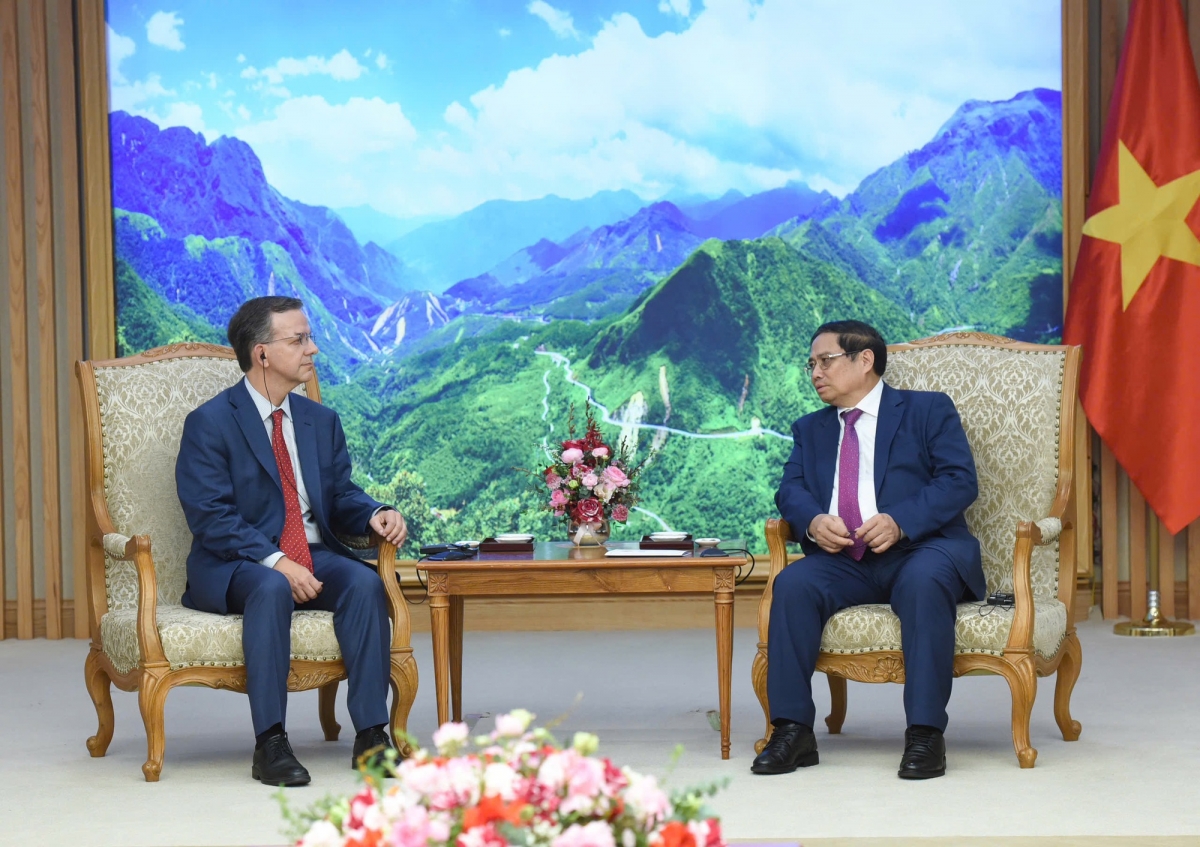Vietnam expects IMF to provide more macroeconomic policy consultations
VOV.VN - Prime Minister Pham Minh Chinh has requested that the International Monetary Fund (IMF) continue to accompany and provide macroeconomic policy consultations with Vietnam to address challenges and promote sustainable development in the context of a rapidly changing global economy.

Chinh made the request during his meeting in Hanoi on November 15 with Paulo Medas, head of the IMF delegation, on a routine assessment mission in Vietnam.
He appreciated the IMF’s assessments, forecasts, and policy recommendations regarding Vietnam’s economic performance in 2024, as well as the outlook and risks for 2025, noting that the IMF’s insights are crucial reference points for formulating macroeconomic management policies.
According to the PM, despite facing significant external impacts and challenges in the global economy, Vietnam has achieved important results in socio-economic development, particularly in public investment, foreign investment attraction, state budget management, monetary and fiscal policies, and trade.
He highlighted the country’s ongoing monitoring of global developments and its appropriate policy responses, prioritizing growth and boosting production. Measures such as reducing loan interest rates, issuing bonds for strategic infrastructure projects, and offering tax relief to businesses have been implemented to ensure food and energy supply, diversify markets, and enhance capital market development.
The PM reiterated Vietnam’s commitment to restructuring the economy toward rapid and sustainable growth, driven by science-technology, and innovation. He emphasized the importance of enhancing labour productivity, overcoming institutional obstacles to mobilize development resources, and fostering both traditional and new growth drivers. The goal is to achieve higher growth rates in the coming decades while building an independent and self-reliant economy that actively engages in deep, substantive, and effective international integration.
He appreciated the substantial and effective cooperation between Vietnam and the IMF, and expected the financial institution to continue supporting and maintaining macroeconomic policy dialogue with Vietnam.
Medas for his part agreed with the Prime Minister’s views and noted that the IMF recognizes Vietnam’s impressive development achievements over the past years, enabling the country to overcome various shocks. He praised Vietnam’s expected results for 2024, highlighting its status as one of the highest-growing economies in the world, with strong exports and good foreign investment attraction.
Medas also commended the effective policies implemented by the Vietnamese government, including maintaining stable inflation, which he said contribute to Vietnam’s remarkable growth compared to other countries.
However, he cautioned that Vietnam still faces significant external challenges, such as rising protectionism that could negatively impact the global economy and various uncertainties affecting financial markets, making emerging economies more vulnerable.
Medas indicated that investors highly value and are very interested in bringing resources to Vietnam, including in the bond market. Acknowledging that Vietnam has significant fiscal space to support economic growth, he recommended that the country proactively manage external risks, strengthen the stability and health of the banking system and capital markets, continue reforms to boost productivity, sustain long-term growth, and create a favorable environment for investors.
The IMF is always ready to support Vietnam, he affirmed.




